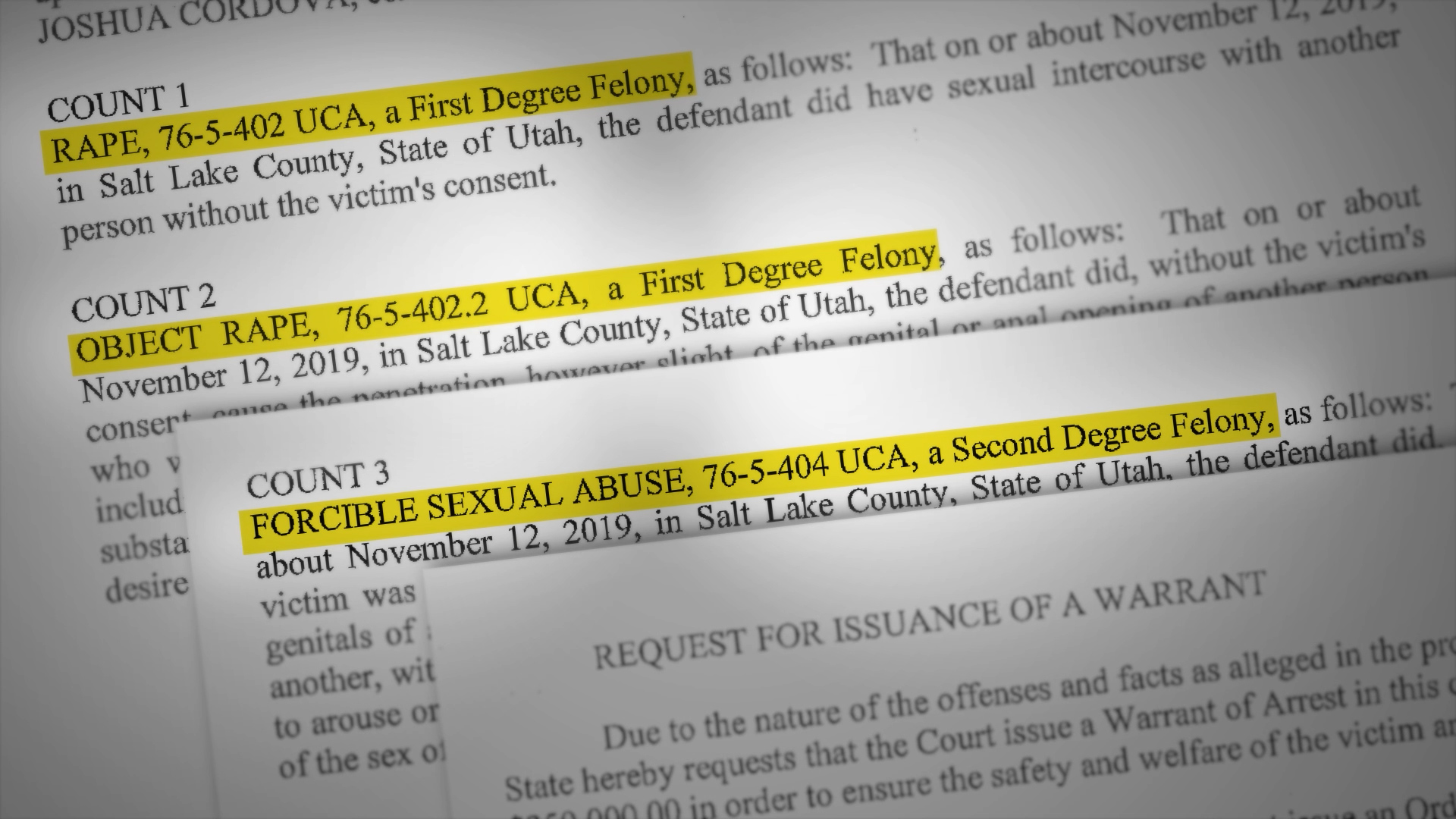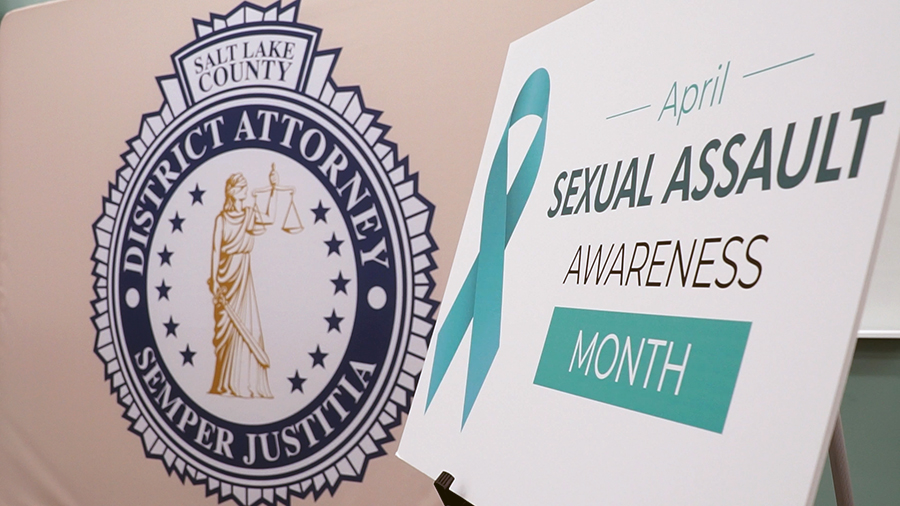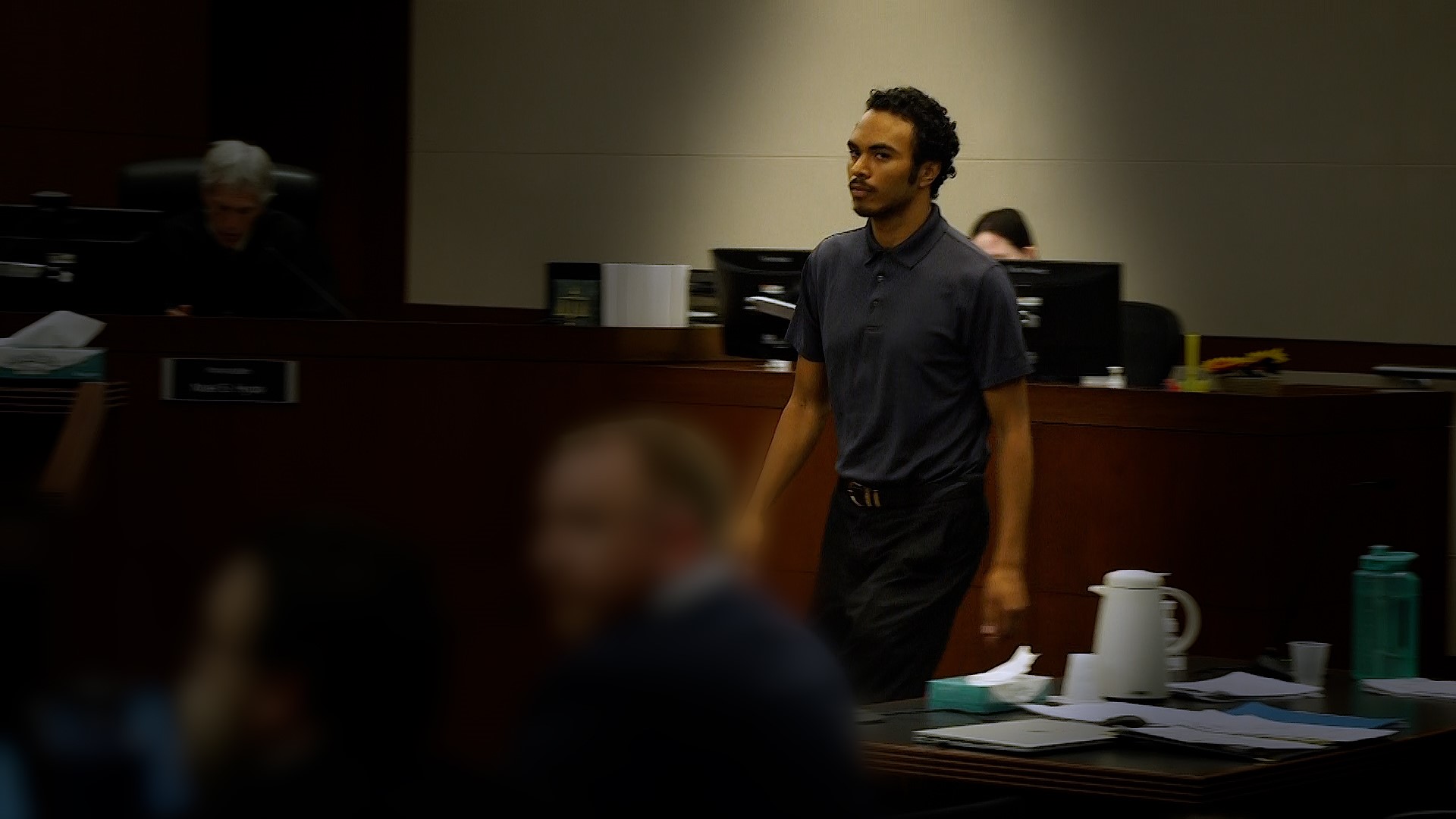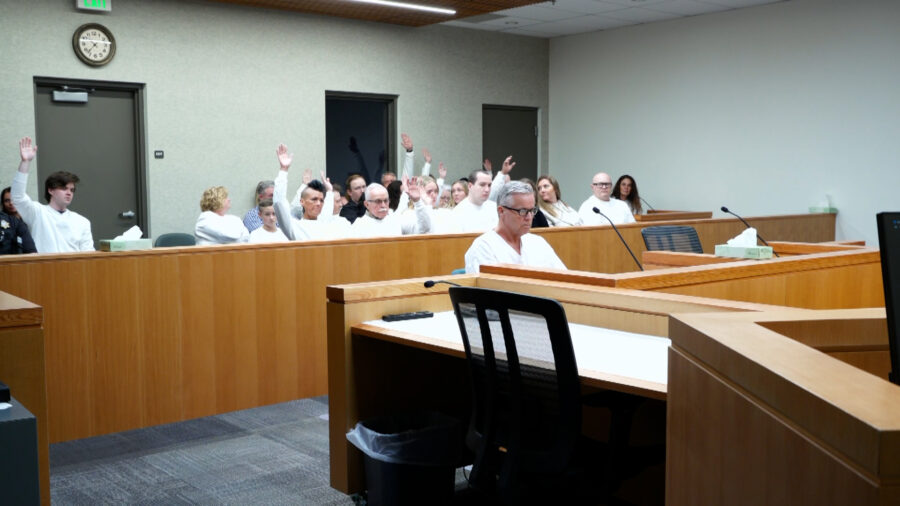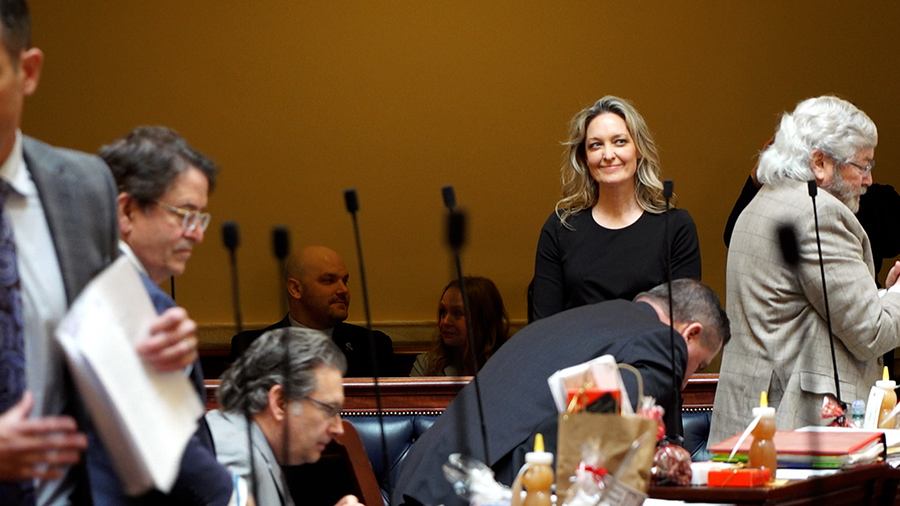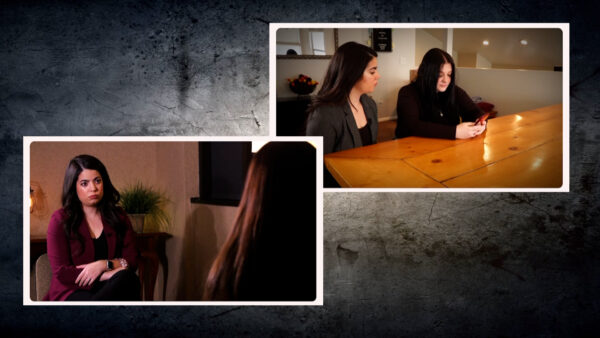‘Not acceptable’: KSL investigation reveals 100+ sex offenders missing from registry, prompts internal audit
Oct 26, 2023, 10:28 PM | Updated: 10:51 pm
LEHI – When the afternoon bell rings at Traverse Mountain Elementary School, children pour into the nearby streets, hopping into waiting cars, walking into the nearby Lehi neighborhood, and zipping toward home on bikes and scooters.
“As soon as 2:20 hits, the streets are flooded with kids,” Lyla Arroyo said as she waited in her car to pick up her daughter on a recent fall day.
A sense of safety and community is why many families choose to live there, and several parents told the KSL Investigators they do their research – checking Utah’s online sex offender and kidnapping registry.
“It’s always good to know as a parent,” Adam Ochoa said. He also lives nearby. “It is a tool we do rely on.”
The online registry’s homepage promises “the most accurate and timely information available,” but a KSL Investigation more than a year in the making uncovered more than 100 convicted sex offenders who should have been on the registry and were not.
“Wow, that’s not something any parent wants to hear,” Arroyo said. “It kind of makes me sick to my stomach.”

Traverse Mountain Elementary School students leaving class for the day. (Josh Szymanik/KSL TV)
While people with criminal convictions that require them to be on the registry do sometimes attempt to skirt the law, the KSL Investigators found many were in compliance and did register, but the state failed to publish their profiles for the public to see.
“There has been delay,” Dan Blanchard, Director of the Utah Department of Corrections Adult Probation and Parole Division said.
As a result of the KSL Investigators’ findings, Utah’s Department of Corrections, which maintains the registry, said it is conducting an internal audit and hiring additional temporary staff members to address an administrative backlog.
‘That’s really scary’
The registry is not just a tool for parents. Tamara Higbee told the KSL Investigators she’s used the registry to map out her jogging routes and before she got married, to background potential dates.
“I do it to kind of protect myself,” she said.
Higbee said learning from the KSL Investigators that the registry has been incomplete for more than a year sparked feelings of anger and frustration.
“And it’s kind of a little bit of fear because now, I don’t know,” she said. “That’s really scary.”

Utah’s online Sex Offender and Kidnapping Registry. (KSL TV)
The KSL Investigators identified more than 200 convicted sex offenders we believed to be missing from Utah’s registry. Since requesting an interview with the Department of Corrections in September, more than 112 of the offenders on our list have been added to the registry, confirming they should have already been there.
While some of them are currently incarcerated, more than half of those added to the registry are living in Utah communities. At least 54 are currently on probation or parole under the supervision of Adult Probation and Parole.
Administrative Delays
Utah law directs the Department of Corrections to register offenders upon placement on probation, commitment to a correctional facility, release on parole or termination of sentence, entrance to community-based residential programs, and termination of probation or parole.
“It is very important to have [the registry] be accurate and up to date,” Blanchard said during an interview with the KSL Investigators earlier in the month.
Blanchard said as offenders register, their information is available to law enforcement through the registry. The delay has been with the public side of the registry, the one Utah families rely on.
“There has been delays seen on having the switch to turn them on the public profile,” Blanchard said.
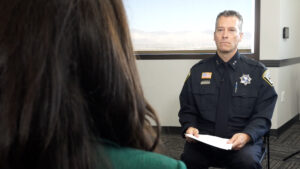
Adult Probation and Parole Director Dan Blanchard. (Josh Szymanik/KSL TV)
He said the department often waits to collect all documentation and verify all information before publishing an offender’s profile for the public to see.
But the profiles of more than 100 people the KSL Investigators have been tracking who have recently been added to the registry are not newly convicted. The KSL Investigators identified offenders missing from the registry who were sentenced anywhere from a year to even decades ago.
In many cases, it’s unclear how long an offender’s information has been missing from the public registry, or whether it was ever there at all.
In one case, a man convicted of sexual abuse of a child in 2006 did not appear during a search of the public registry in August of this year. Blanchard said he did appear on the registry previously, but the offender moved out of state and then moved back, and his public profile was taken down after he returned to Utah.
“Coming back to Utah, he was placed on a pending verification status to look at any new offenses and any new additional information from Wyoming. And that began the delay,” Blanchard said. “We should have finished and had him republished much sooner.”
‘Not acceptable’
The delay in adding the profile of a man living in the Lehi neighborhood, half a mile from the elementary school, stretched on for more than a year. He was sentenced to probation in March of 2022.
According to court records, investigators found more than 160,000 files of child pornography on his computer, and he admitted to fantasizing about children he saw in public.
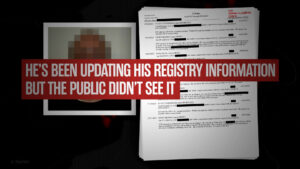
AP&P supervision records show the man has met with his probation officer regularly and has been updating his registry information as required, but the public didn’t see it. He lived in the neighborhood, undetected by neighbors who checked the registry, for more than 500 days.
“It’s not acceptable,” Blanchard said. “He should have been shown on the public side of the registry.”
The Lehi man’s information finally appeared on the registry on Sept. 27, 2023, more than a year after the KSL Investigators first alerted the state that there might be offenders missing from the registry.
Investigation Timeline
The KSL Investigators first obtained a list of names of convicted sex offenders who were potentially missing from the registry from a whistleblower in 2022 and attempted to verify whether they should appear on the public registry.
In July 2022, the KSL Investigators sent the Department of Corrections a list of about 300 names to check.
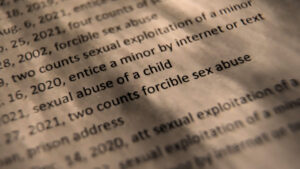
A list of offenders potentially missing from the registry the KSL Investigators provided to Utah’s Department of Corrections in 2022. (Ken Fall/KSL TV)
When asked what the department did with the list we provided, Blanchard said, “We had some spot checks that were done on that list.”
He said their check on a sampling of the names didn’t turn up significant issues. In some cases, he said offenders had been convicted of crimes but not sentenced, and the department doesn’t register people until after their sentencing.
But a thorough check of the list would have identified the Lehi man and more than 80 others who should have been on the registry more than a year ago.
“That’s something we should have done at the time,” Blanchard said.
The KSL Investigators continued looking into what we believed was a problem – obtaining a second list via a public records request and spending several months trying to track and independently verify information about individual people missing from the registry – before reaching back out to the Department of Corrections about the issue a second time.
Internal Audit
The true scope of the problem, including how many names have been missing and for how long, remains unclear.
In order to identify and address issues with the registry, Department of Corrections Executive Director Brian Redd – who was appointed to his role in May – ordered an internal audit, and the department has said it will share the results of that audit with the public.
“Our commitment to the integrity of the Sex Offender Registry is unwavering,” Redd said, according to a written statement provided to the KSL Investigators. “We understand the critical role it plays in keeping communities informed and safe. That’s why we are taking steps, including an internal audit, to ensure it is functioning as intended.”
A department spokesperson also told KSL that the department is hiring four temporary part-time employees to assist in working through the backlog and bringing the registry up to date.
In 2024, the task of maintaining the registry is set to shift to the Department of Public Safety. Blanchard said the Department of Corrections intends to hand over a complete registry.
“By conducting the internal audit, from Director Redd’s request for us, and addressing other staffing short term, we will have things that need to be addressed be addressed before the move occurs next year,” Blanchard said.
Have you experienced something you think just isn’t right? The KSL Investigators want to help. Submit your tip at investigates@ksl.com or 385-707-6153 so we can get working for you.
If you have experienced sexual violence, you can access help and resources by calling Utah’s 24-hour Sexual Violence Help Line at 1-801-736-4356 (English) or 1-801-924-0860 (Spanish). You can also call the Rape Recovery Center office line during office hours at 801-467-7282 or the National Sexual Assault Hotline at 1-800-656-4673 for free, confidential counseling.


